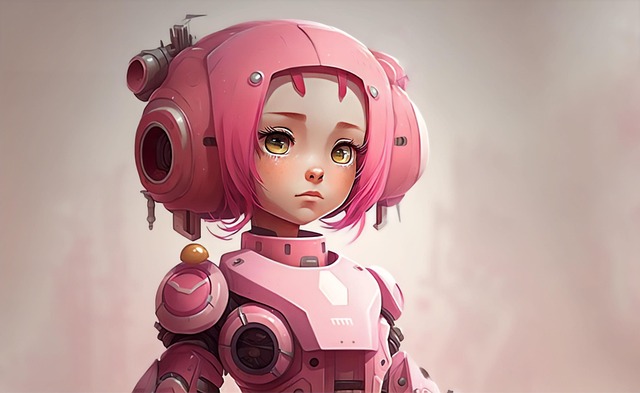# Harnessing AI Innovations: How Emerging Technologies Are Shaping the Future of Our World
The advent of artificial intelligence (AI) has ushered in a new era of technological advancement, fundamentally altering the landscape of various industries. As organizations strive to stay competitive, the integration of AI innovations has become paramount. This article explores the transformative impact of AI and other emerging technologies on our world, delving into their applications, implications, and the future they promise.
## The Rise of AI in Everyday Life
Artificial intelligence has seamlessly woven itself into the fabric of daily existence. From voice-activated assistants like Siri and Alexa to personalized recommendations on streaming platforms, AI is omnipresent. These technologies utilize machine learning algorithms to analyze user behavior and preferences, providing tailored experiences that enhance convenience and engagement.
In the realm of healthcare, AI’s influence is particularly profound. Algorithms are now capable of diagnosing diseases with remarkable accuracy, often surpassing human capabilities. For instance, AI systems can analyze medical images to detect conditions such as cancer at an early stage, leading to timely interventions and improved patient outcomes. Moreover, AI-driven predictive analytics are enabling healthcare providers to anticipate patient needs, optimize resource allocation, and streamline operations, ultimately enhancing the quality of care.
Beyond healthcare, AI is making strides in sectors such as finance, where it is employed to detect fraudulent transactions and assess credit risk. Financial institutions leverage AI to analyze vast amounts of data in real time, ensuring swift decision-making and better risk management. As these technologies continue to evolve, their potential to reshape industries and improve efficiencies becomes increasingly evident.
## The Intersection of AI and Other Emerging Technologies
While AI stands at the forefront of technological innovation, it does not exist in isolation. The convergence of AI with other emerging technologies, such as the Internet of Things (IoT), blockchain, and augmented reality (AR), is driving unprecedented advancements. This intersection creates a synergistic effect, amplifying the capabilities of each technology and unlocking new possibilities.
IoT devices generate vast amounts of data, which AI systems can analyze to derive actionable insights. For instance, smart home devices collect information about user habits, allowing AI to optimize energy consumption and enhance security. In industrial settings, IoT sensors monitor equipment performance, enabling predictive maintenance powered by AI, which minimizes downtime and reduces operational costs.
Blockchain technology also benefits from AI integration, particularly in enhancing security and transparency. AI can analyze blockchain transactions to detect anomalies and potential fraud, thereby bolstering the integrity of decentralized systems. Furthermore, the combination of AI and blockchain facilitates the development of smart contracts, which execute automatically when predefined conditions are met, streamlining processes across various sectors.
Augmented reality, too, finds a powerful ally in AI. By employing AI algorithms, AR applications can deliver immersive experiences that adapt to user interactions in real time. This is particularly valuable in fields such as education and training, where simulations can provide learners with realistic scenarios that enhance understanding and retention. As these technologies continue to evolve in tandem, the potential for innovation is boundless.
## Ethical Considerations and the Future of AI
As the capabilities of AI and emerging technologies expand, so do the ethical considerations surrounding their use. Concerns regarding privacy, bias, and job displacement are at the forefront of discussions about the future of AI. The ability of AI systems to process vast amounts of personal data raises significant questions about user consent and data security. Striking a balance between innovation and ethical responsibility is crucial to ensure that technological advancements do not infringe upon individual rights.
Bias in AI algorithms is another pressing issue. If the data used to train AI systems reflects societal prejudices, the resulting algorithms can perpetuate and even exacerbate these biases. Addressing this challenge requires a concerted effort from developers, policymakers, and industry leaders to establish guidelines and best practices that promote fairness and inclusivity in AI applications.
Job displacement due to automation is a concern that cannot be overlooked. As AI systems become increasingly capable of performing tasks traditionally carried out by humans, there is a legitimate fear of widespread unemployment. However, it is essential to recognize that AI also has the potential to create new job opportunities. The demand for skilled professionals who can develop, implement, and manage AI technologies is on the rise. By investing in education and training, society can prepare the workforce for the jobs of the future.
In conclusion, the integration of AI and emerging technologies is reshaping our world in profound ways. From enhancing everyday experiences to revolutionizing industries, the potential benefits are immense. However, navigating the ethical landscape and ensuring that these technologies are used responsibly is imperative for a sustainable future. As we harness the power of AI, it is our collective responsibility to guide its development in a direction that benefits all of humanity. The future is bright, but it requires thoughtful stewardship to ensure that the innovations we create serve to uplift and empower society as a whole.











